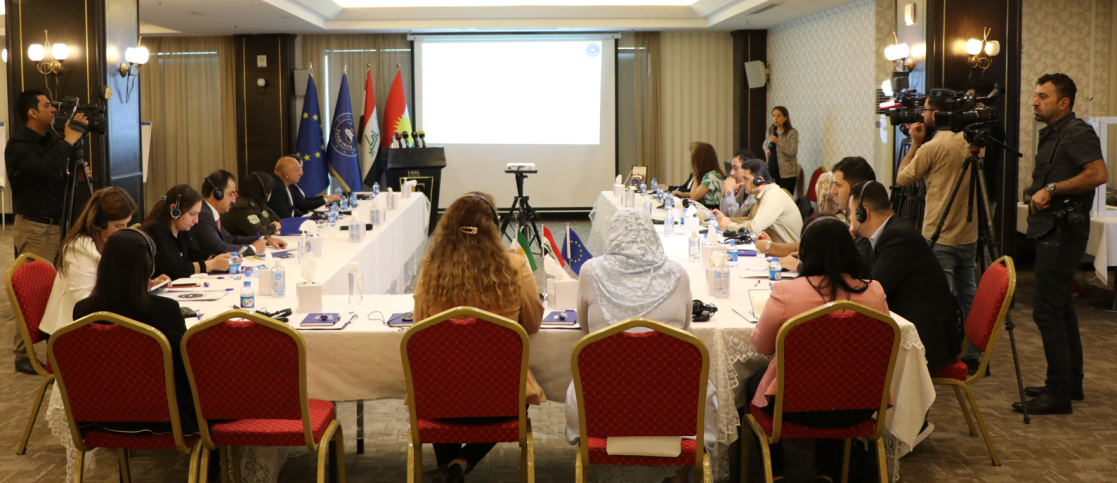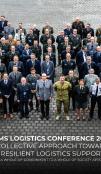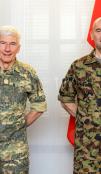#FieldVision: Supporting civilian security sector reform in Iraq – a contribution to peace, stability and rule of law

When I took office in Baghdad in mid-August, the situation was very tense with an ongoing occupation of the Parliament by hundreds of demonstrators, due to a political deadlock almost a year after the elections. By the end of the month, the situation culminated in a direct armed confrontation between the militias and with the security forces.
Iraq is a country with considerable challenges and EUAM Iraq has been called to life to assist the country in overcoming them by helping to reform its security sector. This is what the EU Member States have tasked us with, and the Iraqi government has invited us to do. Our role is to support the local police, intelligence services (those under the Ministry of Interior), and other specialised investigative agencies (such as the Office of the National Security Adviser or High Committee on Security Sector Reform under the Prime Minister’s Office).
Strategic advice as the backbone for contributing to Iraq’s stability
Let us be clear – our support does not translate into delivering uniforms, helmets, arms or other equipment. As an advisory mission, the strategic advice offered by our experts aims to transfer vision, knowledge and experience to the Iraqi security sector decision-makers. This is sustainable support and we aim for deeply rooted improvements and long-lasting results.
Whereas in 2019, during Iraq’s October (Tishreen) uprising hundreds of demonstrators lost their lives in confrontations, recently, the Iraqi security forces showed greater restraint and professionalism while policing demonstrations in the past months. We hope that this can also be linked to EUAM Iraq’s long-lasting efforts in advising the Ministry of Interior’s strategic-level senior police officers on Command, Control and Crisis Management.

Solid partnerships
Also, although the security-related backdrop has recently been challenging, I have been impressed to witness the strength of our local partnerships and the eagerness of our interlocutors for the Mission’s work to continue. Compared to my first time at EUAM Iraq in 2017-2018, when the Mission had just been established, I can see that the partnerships have really solidified.
To offer an example, in late August, already the day after the clashes stopped in the Baghdad international zone, where the Mission, together with the main state institutions and most embassies is located, our national counterparts were asking us to resume our advisory work. This shows that there is real interest and willingness from our partners to move on with reforms, despite the challenges and obstacles that are there.
With a new government in place, EUAM Iraq will continue its advisory work and workshops in full sail.
The EU Integrated Approach fully on track
Since my arrival, I have met with all major interlocutors, starting with the then President and the Prime Minister, all of them expressing their deep interest and trust in our goals and achievements in the civilian security sector reform.
During most of those meetings, I was kindly introduced by the Head of the EU Delegation to Iraq, Ambassador Ville Varjola, an experienced diplomat and our closest partner in the field within the EU Integrated Approach in external conflicts and crises.

In Iraq, the Integrated Approach includes joint efforts that we do together as an EU family which is something I really believe in. For example, in October, we were able to join our forces with the Brussels-based Service for Foreign Policy Instruments and EU Delegation to Iraq in offering a training to 23 female police officers within the Iraqi Ministry of Interior, on counter-terrorism investigating techniques. Also an example of the Mission’s engagement in gender mainstreaming, the event offered a space for sharing best practices and learning about techniques such as electronic surveillance, interrogations or cyber intelligence.
Working beyond Baghdad – reaching out to other regions
I have been also happy to experience EUAM Iraq’s vibrant regional presence in Erbil, the capital of the Kurdistan Region of Iraq (KRI), in addition to our headquarters in Baghdad. In my meetings with the regional Prime Minister, President and the Deputy Minister of Interior, they all underlined the need for institutional reform and fight against corruption in the region and asked me to offer strategic advice on fighting organised crime, including human trafficking and illegal migration, in the area.
EUAM’s outreach also extends to the Basra province in southern Iraq where the two great rivers Euphrates and Tigris converge. Local police units were very much willing to engage during the seminar on strategic planning conducted by EUAM Iraq advisers in July, also inviting the Mission to advise and support regarding the security-related preparations of the 25th Arabian Gulf Cup to be hosted in Basra in January 2023.
The importance of a good team
The biggest asset of a mission, just as in any organisation, is its people. I truly cherish the local insight, knowledge as well as the liberating sense of humour of our national colleagues, despite the challenges in the Iraqi society.
I also treasure the tremendous amount of experience that our international experts and senior strategic advisers have and can offer to Iraqi counterparts in the fields of institutional reform, strategic planning, policy and human resources management, policing protests, command and control, crisis management, violent extremism, or cultural heritage protection, to name some of our thematic priorities. The diversity of our team contributes to a successful mandate implementation.

Despite the challenges, I am humbled to have witnessed during my first months in Iraq that our Mission – and the EU – is perceived as a trustworthy partner, and our assistance cherished. Contributing to the security and stability in Iraq through our advisory work is the main and ultimate goal that enhances regional and EU security.
EUAM Iraq mandate in a nutshell
The European Union Advisory Mission in Iraq was launched five years ago, in October 2017, with the current mandate period ending in 2024. The Mission’s main objectives are:
To provide strategic advice and expertise to the Iraqi authorities in support of the civilian aspects of the security sector reform.
This means assisting the country in introducing and implementing its Iraqi-led and Iraqi-owned reform processes in order to rebuild its institutions, and increase stability and peace in the post-conflict society.
EUAM Iraq also aims at assessing opportunities for further EU engagement in support of the needs of the civilian security sector reform, working in close collaboration with the EU Delegation to Iraq as per the EU Integrated Approach – joining forces within the European Union institutions and combining different EU tools towards peace and security.






